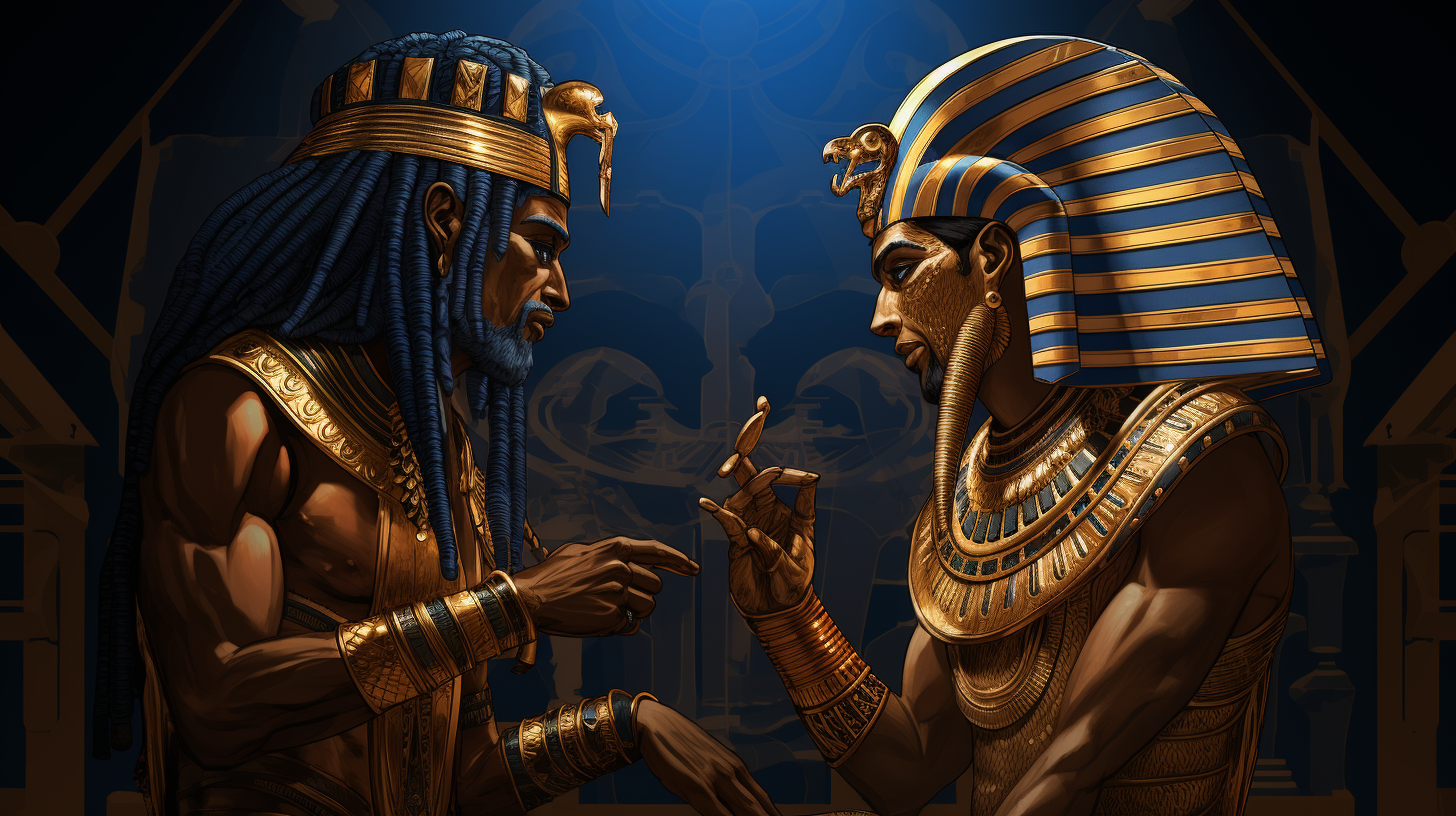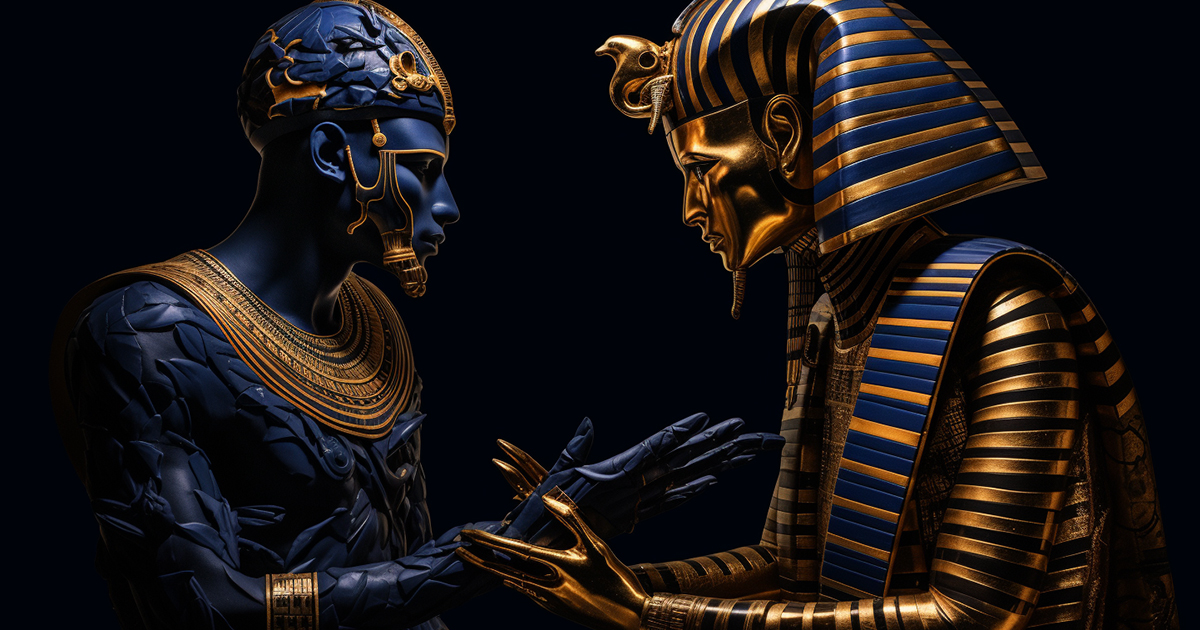The Beginning
Within the realm of ancient history and conspiracy theories lies a dormant narrative waiting to be revealed. Season 12, Episode 5 of “Ancient Aliens” unravels an intriguing saga surrounding the purported connection between Moses and King Tut’s uncle, Ankhkheprure. Venturing into the Valley of the Queens on January 26, 1909, years before the iconic unearthing of King Tut’s tomb, a series of events during a theatrical spectacle prompt inquiries into the existence of Akhenaten and the peculiar correlations between him, his brother Thutmose, and the biblical character Moses. Let’s embark on this enthralling expedition to unlock the enigmas of ancient Egypt and its plausible ties to biblical history.
The Enigma Unfolds
The episode commences with a dramatic performance staged in the Valley of the Queens, where artist and playwright Joseph Lindon Smith, accompanied by Egyptologist Arthur Weigel, presents a play to Howard Carter’s team. Centered on a curse cast upon Pharaoh Akhenaten by the Amun priests he defied, the tale foretells Akhenaten’s eternal wandering as a ghost due to being barred from the afterlife. The narrative intensifies as peculiar occurrences unfold during the play: a sudden tempest, an actress losing her sight, and one of the playwright’s wives falling gravely ill. These incidents cast doubt on the validity of Akhenaten’s existence and the potential repercussions of tampering with his legacy.

The Puzzling Sarcophagus
As the narrative progresses, attention is drawn to the mysterious sarcophagus of King Tut. However, controversy surrounds this artifact. The middle coffin bears distinct facial features, with its cartouche – the king’s nameplate – seemingly replaced by King Tutankhamun’s name. Upon closer inspection, a concealed cartouche beneath King Tut’s name unveils the inscription “Ankhkheprure,” a title unrelated to King Tut. This revelation poses a baffling question: why was a sarcophagus designated for Ankhkheprure utilized to enshroud King Tut’s remains?
Exploring Ankhkheprure’s Mystery
Ankhkheprure transcends being merely a name. In ancient Egypt, rulers assumed throne names distinct from their birth designations, and Ankhkheprure is presumed to be the throne moniker of a significant and enigmatic member within King Tut’s lineage. This intriguing premise hints at the possibility that Ankhkheprure might be Prince Thutmose, purportedly Akhenaten’s brother, destined for rulership either preceding or succeeding Akhenaten, an opportunity he never seized.
Freud’s Intriguing Hypothesis
In a surprising twist, the episode introduces a theory stemming from an unconventional source: Sigmund Freud. The esteemed psychoanalyst, renowned for his psychological endeavors, harbored a profound fascination with Judaism and ancient Egypt. Freud’s 1939 proposition suggests that monotheism could have originated from Akhenaten and proposes that someone within Akhenaten’s inner circle, possibly his brother Thutmose, embodies the historical figure of Moses.
Linking the Pieces
Freud’s theory draws compelling parallels between the biblical depiction of Moses and the historical account of Thutmose. The meaning of “Thutmose,” signifying “son of the god Thoth,” is particularly noteworthy. By removing “Tut” from his name, “Mose” strikingly resembles “Moses.” Moreover, Moses’ upbringing as the prince apparent’s brother mirrors the historical Thutmose’s position closely.
Video:
In Conclusion
The episode of “Ancient Aliens,” titled “Is Moses King Tut’s Uncle?,” escorts us through a captivating expedition exploring the enigmas of ancient Egypt and the plausible links between Akhenaten’s lineage, Thutmose, and the biblical figure Moses. While the notion of Moses’ potential affiliation with the Egyptian royal family may appear audacious, it underscores the everlasting allure of ancient history and the thrill of uncovering concealed correlations transcending eras and civilizations. Whether these theories withstand scrutiny or not, they serve as a reminder of the limitless marvels and mysteries that continue to captivate our imaginations, bridging the past with our contemporary pursuit of enlightenment and comprehension.
